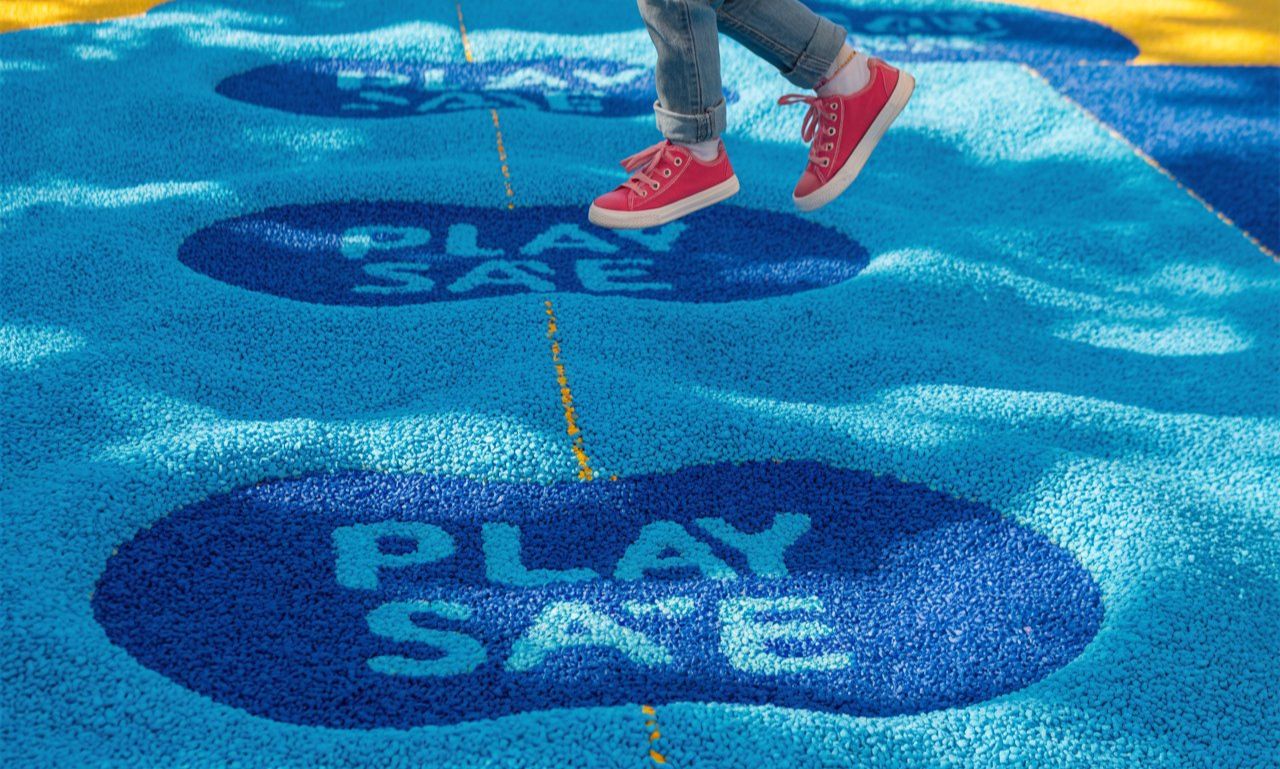Rubber granulaat mat products are becoming increasingly popular in contemporary construction, landscaping, gyms, and industrial settings. Made from recycled rubber granules, typically from old tires, these mats are well-known for their resilience, shock absorption, and environmentally responsible production. Rubber granulaat mats are a useful and environmentally friendly flooring and protection option as sustainability gains international attention.
This page offers a thorough overview of rubber granulaat mats, covering their features, advantages, installation procedures, upkeep advice, and uses in various industries.
What is a Rubber Granulaat Mat?
A rubber granulaat mat is a type of mat or flooring tile made from compressed and bonded rubber granules. These mats are designed to provide:
- Safety and slip resistance
- Shock absorption and noise reduction
- Long-lasting durability
- Environmental sustainability
The mats can vary in thickness, density, and size depending on their application. For instance, gym flooring may require thicker mats, while playgrounds often use softer, impact-absorbing options.
Manufacturing Process of Rubber Granulaat Mats
- Collection of Scrap Tires – Old, unusable tires are collected.
- Shredding into Granules – Tires are shredded into small granules.
- Steel and Fiber Removal – Metal wires and textile fibers are separated.
- Compression and Binding – Granules are compressed with eco-friendly binders.
- Molding into Mats – The mixture is pressed into mat molds under heat.
This process not only recycles waste tires but also creates a strong, durable flooring product.
Key Features of Rubber Granulaat Mats
- Shock Absorption – Reduces the impact on joints, muscles, and equipment.
- Anti-Slip Surface – Provides grip even in wet or sweaty conditions.
- Durability – Resistant to heavy loads, scratches, and wear.
- Noise Reduction – Minimizes vibrations and sound.
- Eco-Friendly – Made from recycled materials.
- Weather Resistant – Suitable for both indoor and outdoor use.
Benefits of Using Rubber Granulaat Mats
1. Environmental Sustainability
By recycling old tires, these mats contribute to waste reduction and lower environmental impact.
2. Safety and Comfort
The shock-absorbing properties make them ideal for gyms, playgrounds, and workplaces where falls or heavy impacts are common.
3. Cost-Effective Flooring
Compared to other flooring solutions, rubber granulaat mats provide long-term value due to their durability and low maintenance.
4. Versatile Applications
From sports facilities to industrial warehouses, these mats are adaptable for multiple uses.
5. Easy Maintenance
They require minimal cleaning—just sweeping or mopping with mild detergent.
Applications of Rubber Granulaat Mats
1. Fitness and Gym Flooring
- Provides cushioning for weightlifting and exercise.
- Protects gym equipment and prevents floor damage.
2. Playground Flooring
- Ensures child safety by reducing impact from falls.
- Available in colorful designs for aesthetic appeal.
3. Industrial and Commercial Spaces
- Used in factories and warehouses for worker safety.
- Reduces fatigue for workers standing long hours.
4. Horse Stables and Agricultural Use
- Provides comfortable flooring for animals.
- Reduces mud and dust in stables.
5. Home and Garden Applications
- Used as outdoor patio flooring or garden walkways.
- Acts as an anti-fatigue mat in kitchens or workshops.
Choosing the Right Rubber Granulaat Mat
When selecting the perfect mat, consider:
- Thickness – Thicker mats offer better shock absorption.
- Density – Higher density ensures better durability.
- Surface Texture – Smooth for easy cleaning, textured for extra grip.
- Size and Shape – Available in rolls, tiles, or pre-cut mats.
- Application-Specific Needs – Choose based on gym, playground, or industrial use.
Installation of Rubber Granulaat Mats
Step-by-Step Guide
- Surface Preparation – Ensure the floor is clean and dry.
- Layout Planning – Plan the arrangement for seamless coverage.
- Cutting to Fit – Use a sharp utility knife for adjustments.
- Adhesion (if needed) – Some installations require adhesive or interlocking systems.
- Finishing – Press firmly to ensure proper bonding.
For outdoor installations, drainage consideration is important to prevent water accumulation.
Maintenance Tips for Longevity
- Regular Cleaning – Sweep or vacuum regularly.
- Mild Washing – Use soap water or mild cleaners; avoid harsh chemicals.
- Prevent Sharp Objects – Avoid dragging sharp or heavy metal objects.
- Periodic Inspection – Replace worn-out sections when necessary.
With proper care, a rubber granulaat mat can last over 10–15 years.
Rubber Granulaat Mat vs. Other Flooring Solutions
| Feature | Rubber Granulaat Mat | Foam Flooring | Carpet Tiles | PVC Flooring |
|---|---|---|---|---|
| Durability | Very High | Medium | Low | High |
| Shock Absorption | Excellent | Good | Poor | Moderate |
| Slip Resistance | Excellent | Moderate | Low | Moderate |
| Maintenance | Easy | Easy | Difficult | Moderate |
| Eco-Friendliness | High (Recycled) | Low | Low | Moderate |
| Cost-Effectiveness | High | Medium | Low | Medium |
Latest Trends in Rubber Granulaat Mats
- Eco-Friendly Innovations – Use of non-toxic binders.
- Custom Designs – Colorful and patterned mats for aesthetics.
- Interlocking Systems – Easy DIY installation options.
- Hybrid Flooring – Combination of rubber and vinyl for better performance.
Why Rubber Granulaat Mats are a Smart Investment
- Long-Term Value – Durable and cost-effective.
- Health and Safety – Protects both people and equipment.
- Eco-Conscious Choice – Promotes recycling and sustainability.
- Versatile Usage – Suitable for residential, commercial, and industrial settings.
Final Thoughts
More than just a flooring option, the rubber granulaat mat is an investment in long-term performance, sustainability, and safety. Rubber granulaat mats offer a dependable, economical, and environmentally responsible option whether you’re managing an industrial workspace, building a playground, or putting up a home gym.
You may guarantee comfort, safety, and longevity for many years to come by selecting the appropriate type, taking good care of it, and using it in the appropriate environment.
